A pivotal scene early in The Eyes of Tammy Faye depicts the film's title character, televangelist Tammy Faye Bakker (later Messner), leading with love despite the narrow agenda of the "good" Christian men who surrounded her, like Pat Robertson, Jerry Falwell, and her husband, Jim Bakker.
In the scene, Tammy responds to Falwell's accusations that feminists and "homosexuals," among other enemies of the religious right, are ruining the fabric of his idealized United States.
"I don't think of them as homosexuals. I just think of them as other human beings that I love," Tammy says. "We're all just people made out of the same old dirt, and God didn't make any junk," she continues while Jim squirms at her radical openheartedness in the presence of the anti-LGBTQ+ Falwell. Later in life, Tammy performed at Pride events and even judged a Tammy look-alike contest replete with drag queens.
Oscar nominee Jessica Chastain portrays Tammy with an inner light that makes more of an impression in the film than the signature heavy makeup for which she was roundly derided in real life. Another section of the film (on VOD now) re-creates Tammy's 1985 interview on The PTL Club with Steve Pieters, who was gay and living with AIDS. With great compassion, she inquires about Pieters's life on her Christian talk show at a time when evangelicals were scapegoating the queer community for everything from HIV and AIDS to natural disasters, and Ronald Reagan had refused for years to even utter the term AIDS in public. The interview with Pieters is one reason Chastain says Tammy was "punk rock."

"The Steve Pieters interview is a shocking moment. I call her punk rock. That's how I see Tammy," Chastain tells The Advocate.
"Televangelism is run by white men, and here comes this woman in a time when the U.S. government won't even say AIDS. They won't talk about it. Communities are dying. And she brings Steve Pieters on to the show. Not only does she [ask] 'When did you realize that you were different? And what did that feel like and what happened when you came out to your family?' For the Christian parents to hear this, the parents whose children might be struggling with the idea of coming out to them. That was groundbreaking."
"And then said, 'As Christians, we're supposed to love through anyone, and yet we're so afraid of an AIDS patient that we won't put our arms around them and tell them that we care,'" Chastain says. That Tammy stepped out of a comfort zone to support LGBTQ+ people was "huge for me," she adds.
The biopic from director Michael Showalter, based on the 2000 documentary of the same name from Fenton Bailey and Randy Barbato, begins with Tammy's austere childhood with a hyper-religious mother (Cherry Jones in the film) and follows her through falling in love with Jim (Andrew Garfield) to their rise as televangelists and their subsequent fall from grace amid financial and sex scandals in the late '80s. Chastain was about 10 years old when the Bakkers' empire, which included the PTL Christian broadcasting network, The PTL Club, and the amusement park Heritage USA, collapsed amid bankruptcy, fraud, and accusations that Jim had raped a former church secretary, Jessica Hahn.
For the acclaimed star of Zero Dark Thirty and Molly's Game, her first real introduction to Tammy came in the form of sketch comedy where she was often depicted sobbing, eyeliner and lashes running down her cheeks in ragged clumps. But after watching Bailey and Barbato's documentary a few times, Chastain was mesmerized by the story and bought the rights to make this film in 2012 even before she founded her production company, Freckle Films.

"I loved Dana Carvey as Church Lady," Chastain says of the Saturday Night Live character who called out sinners. "My first foray or idea of Tammy Faye Bakker was what was being [told] to me in those sketches and on the tabloids, which is not the most flattering view."
Moments in the film address the misogynistic media blitz of the time that focused more on Tammy's appearance than on Jim's transgressions and crimes. The level of derision about her looks went so deep that shoppers at the local mall could easily pick up novelty tees with splotches of color on them that invoked Tammy's makeup. The opportunity to take on the double standard Tammy faced also stood out for Chastain.
"Women have been punished for being large, and I just mean energy-wise -- so in terms of how much space you take up, how much makeup you wear, how loud your voice is, how loud your opinion is, how flashy your clothes can be," Chastain says. "But then also being punished for owning too many pants suits, or you have short hair. I'm so tired of society telling women how they need to present themselves in the world. And I was so tired of people caring more about how much mascara Tammy Faye Bakker was wearing than the actual incredible things that she did."
"She said, in fact, that her legacy was of makeup. Which is OK, she loved makeup," she adds. "That is an interesting part of her, but it's not the most interesting part of her. I was happy that we could adjust that in our film."
To play the larger-than-life figure, Chastain immersed herself in Tammy's world, reading books about her subject, books by her children Tammy Sue and Jay Bakker, and the Security and Exchange Commission's findings on the Bakkers' empire. And she took singing lessons with record producer Dave Cobb (who recently produced Brandi Carlile's In These Silent Days) to nail Tammy's over-the-top Christian music numbers. Tammy's outward persona is a big piece of her legacy (she died of cancer in 2007), but it was her inner commitment to kindness and acceptance of LGBTQ+ people from which Chastain drew the deepest inspiration for the role.
"It was very important to end the film with an actual thing she preached," Chastain says. "I found this little moment of her preaching. Basically, she said, 'Without the beautiful grace of God, I wouldn't even be here today. The God reached down and said, Tammy Faye, I love you and I love you just the way you are. God's love is sufficient enough for you today too. And he loves you just the way you are,'" Chastain recites.
"To have that message was like it doesn't matter who you love, you are loved. It doesn't matter what you want to look like. Tammy Faye had the fearlessness of a drag queen. And that's what made her so fabulous."
The Eyes of Tammy Faye is available on VOD now.


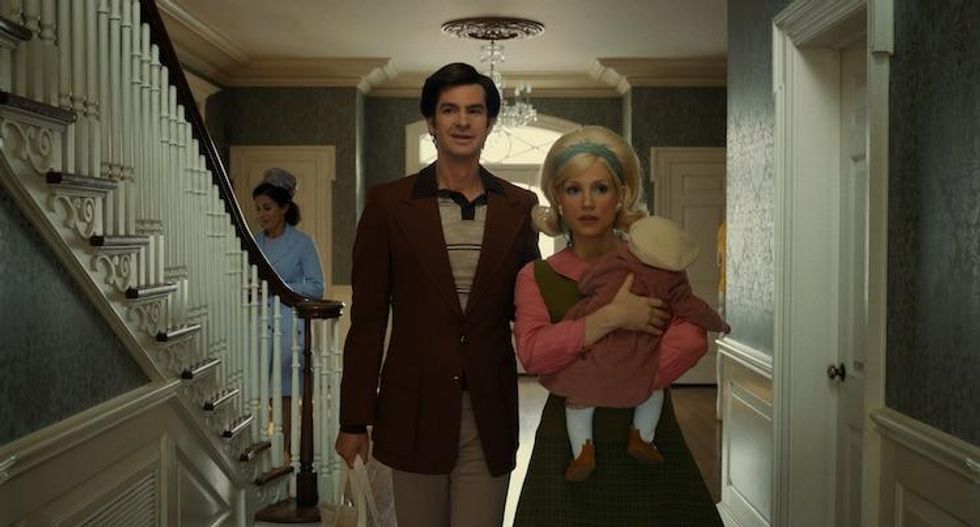
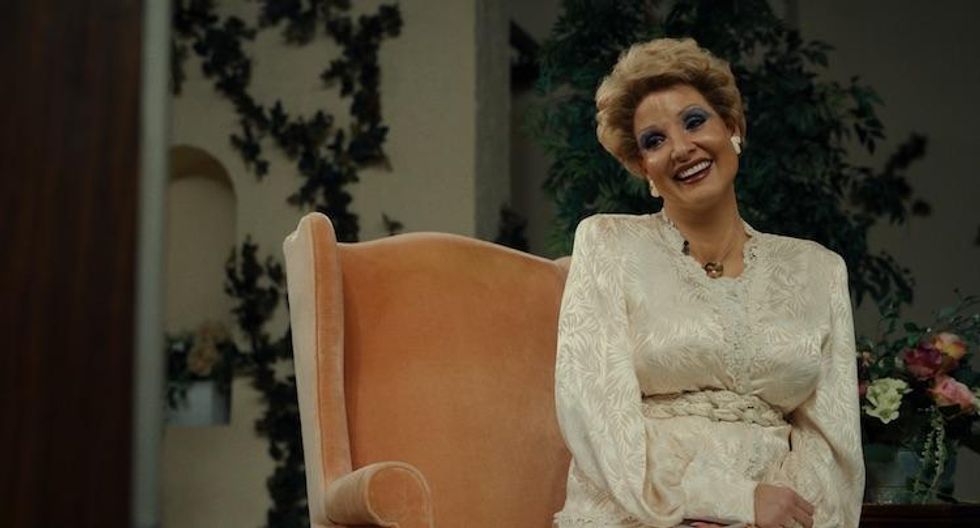






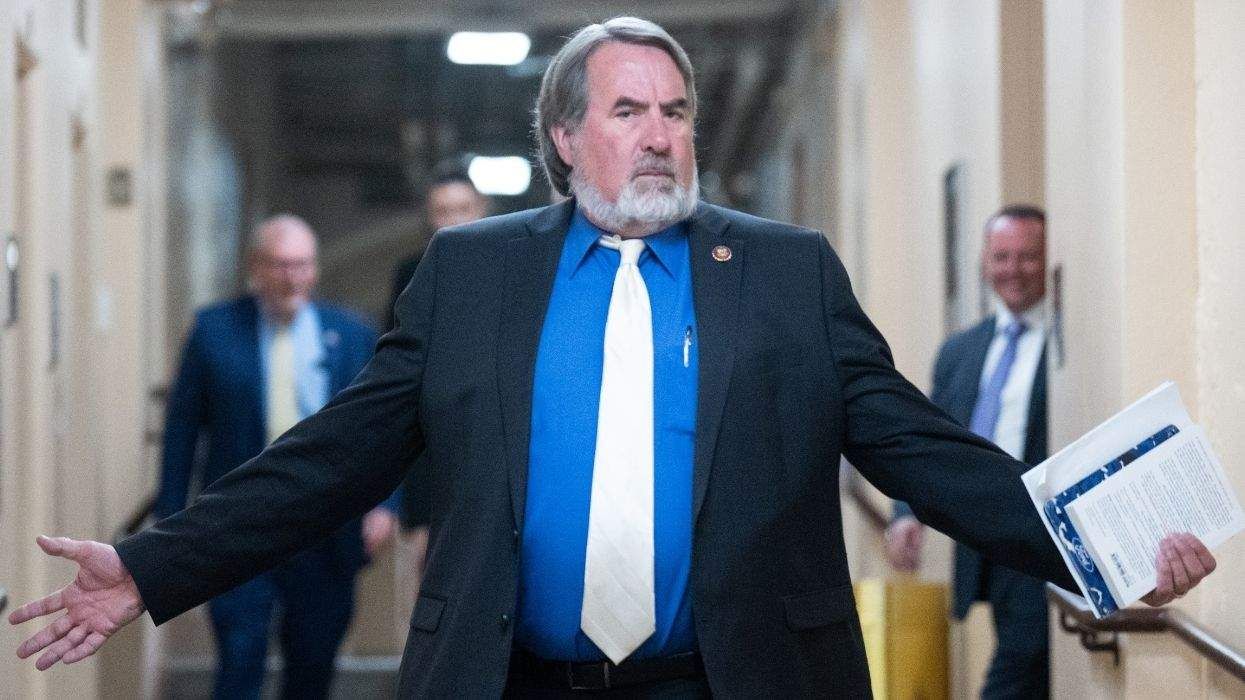



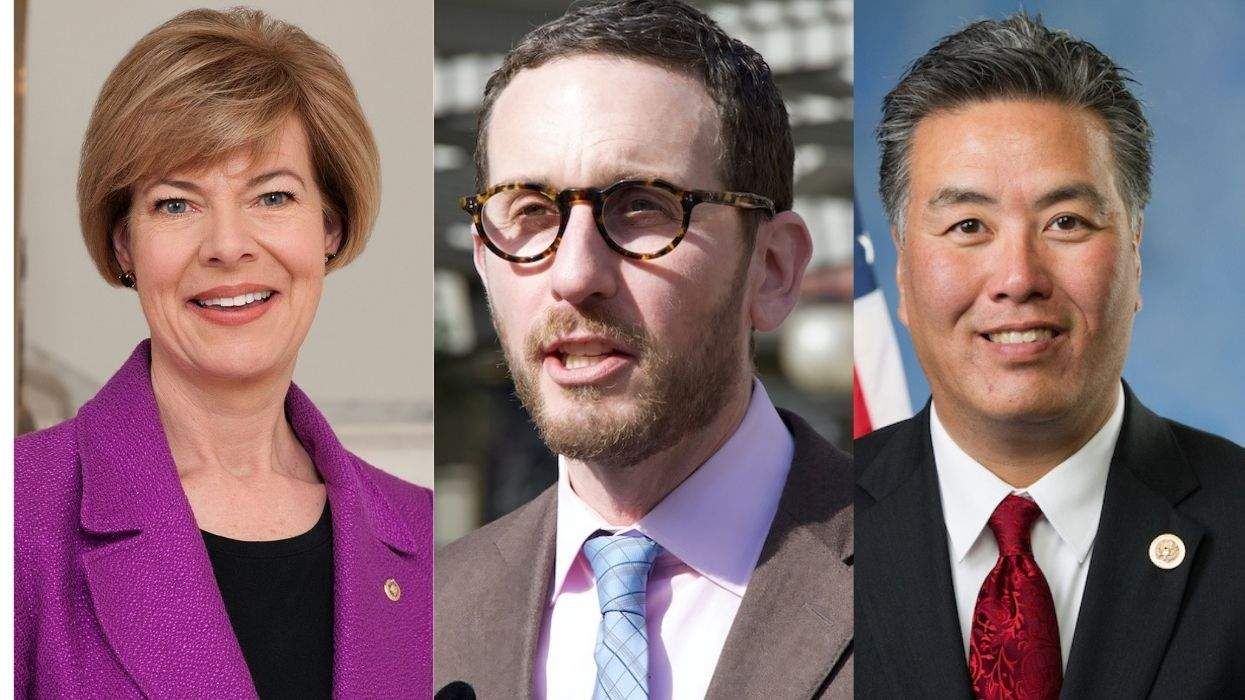


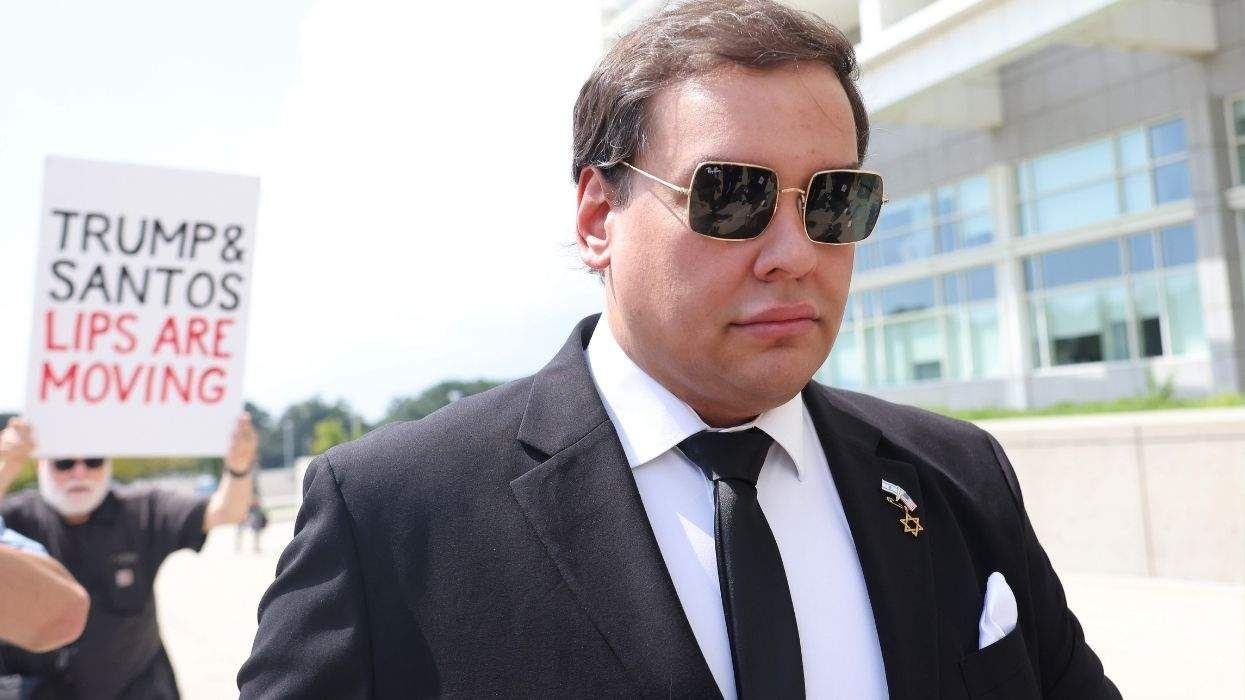
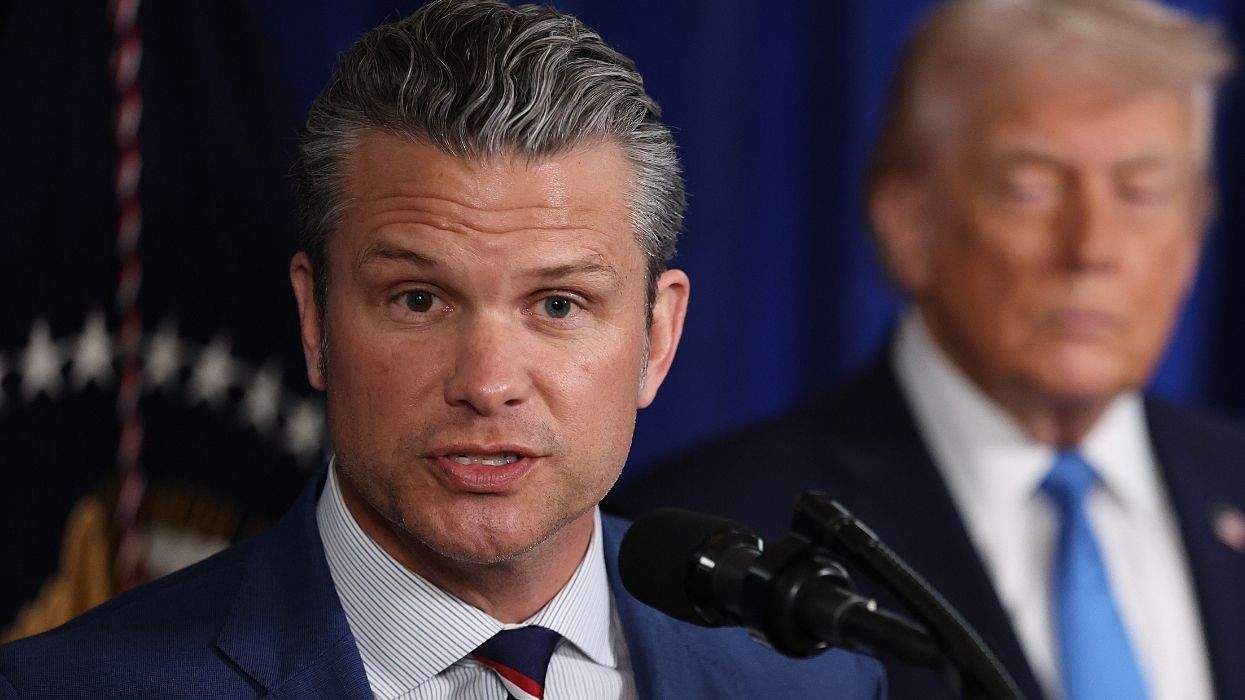


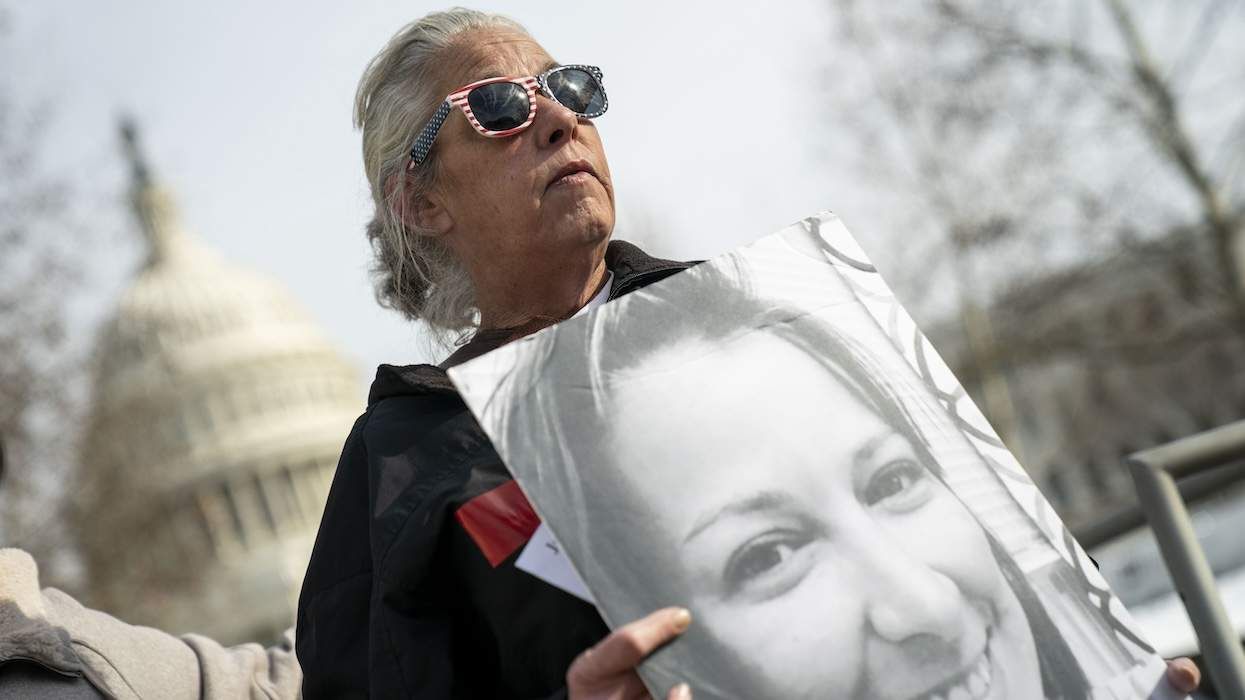
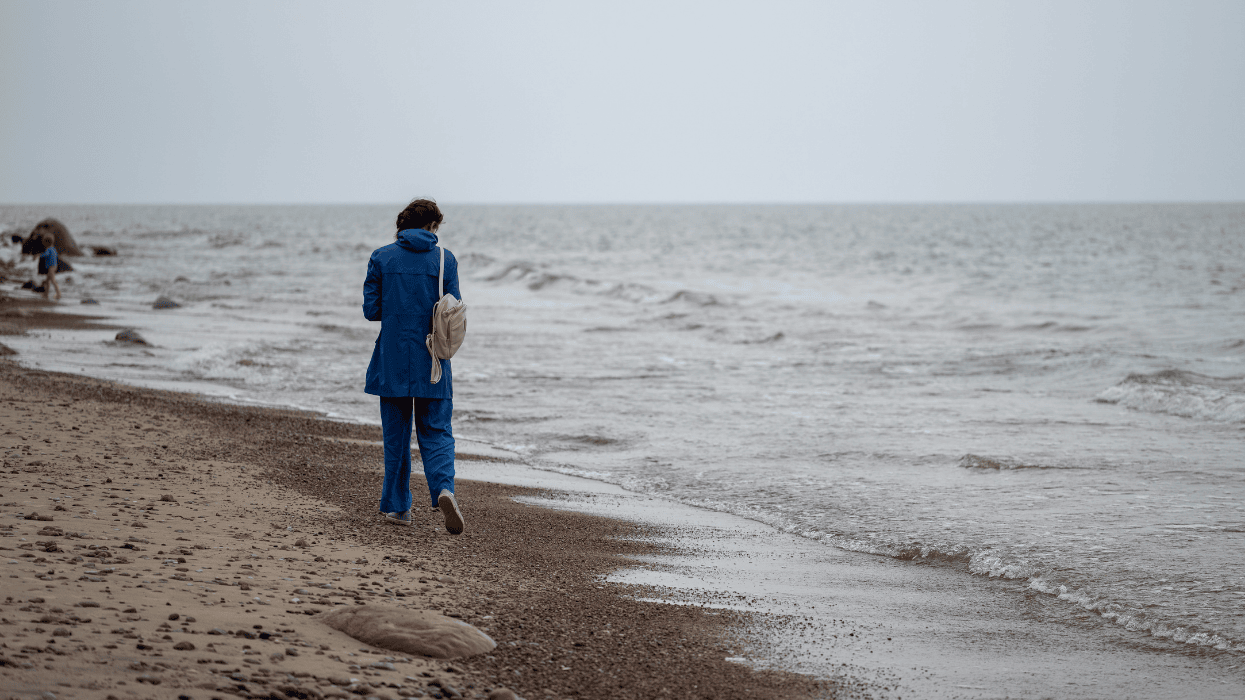


















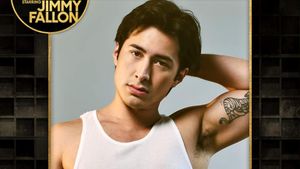


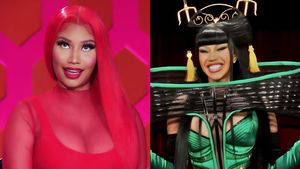

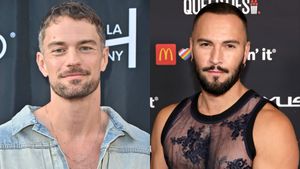

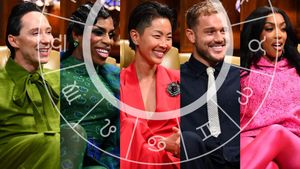









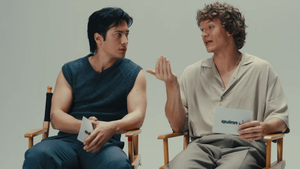












Charlie Kirk DID say stoning gay people was the 'perfect law' — and these other heinous quotes